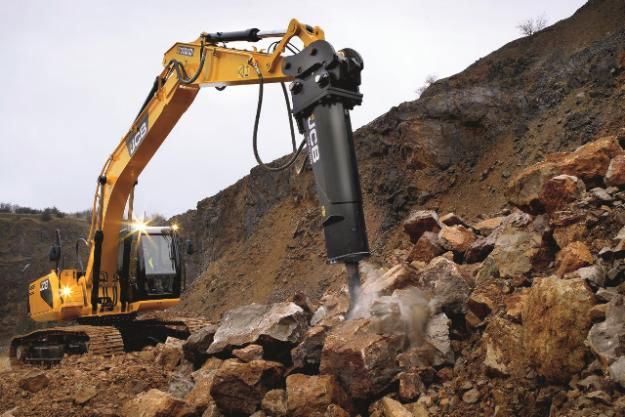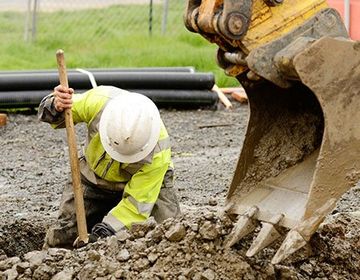Dump Truck Companies in Ohio - Trustworthy Dump Truck Solutions Throughout Ohio
Dump Truck Companies in Ohio - Trustworthy Dump Truck Solutions Throughout Ohio
Blog Article
Comprehensive Excavation Approaches: Grasping the Basics for Success
In the world of construction and civil design, the value of reliable excavation approaches can not be overstated. The cautious preparation, accurate execution, and careful attention to detail required in excavation jobs require an extensive strategy that includes numerous essential aspects. From preliminary soil evaluation to the application of safety measures and normal progress monitoring, grasping these core aspects is important for attaining success in any excavation undertaking. The true mastery lies not just in understanding these principles however in perfectly incorporating them to browse the intricacies of excavation jobs with finesse.
Recognizing Excavation Task Preparation

Effective excavation projects are developed on the structure of extensive and careful preparation. The initial phase of any excavation job is the drawing board, where important decisions are made that can significantly impact the result of the job. During this phase, it is vital to collect all pertinent details regarding the website, including topographical surveys, soil composition, and any kind of potential risks that might exist. Understanding the project extent, budget, and timeline restraints is vital for producing a detailed excavation plan that makes certain the task's success.
One secret aspect of excavation job planning is the growth of a thorough timeline that outlines the sequence of activities, deadlines, and landmarks. By thoroughly thinking about all these factors during the planning stage, excavation projects can be carried out successfully and efficiently, leading to effective end results - lancaster trenching.
Soil Analysis and Website Examination
Conducting extensive soil evaluation and website examination is an important action in the preparation phase of any kind of excavation project. Dirt analysis includes figuring out the structure, framework, and residential properties of the dirt at the excavation website. This information is vital for understanding the dirt's bearing ability, wetness content, and potential for disintegration, which are key consider determining the excavation approaches and devices required for the job.
Site analysis surpasses soil evaluation and encompasses a more comprehensive analysis of the total site conditions. This assessment includes identifying any type of potential threats, such as below ground utilities, ecological worries, or unstable surface, that can affect the excavation process. By extensively examining the website, project supervisors can establish efficient excavation approaches that prioritize safety and security, performance, and environmental management.
Making use of advanced technologies like ground-penetrating radar, dirt tasting, and drone surveys can improve the precision and effectiveness of soil evaluation and site evaluation. Investing time and sources in these initial steps can inevitably conserve time and prevent expensive hold-ups or problems during go to this web-site the excavation procedure.
Devices Choice and Application
Efficient excavation tasks count greatly on strategic devices selection and application to ensure ideal efficiency and efficiency. Selecting the appropriate tools for the task is essential in taking full advantage of efficiency and lessening downtime. Elements such as the sort of soil, depth of excavation, and task range play a significant function in determining one of the most ideal tools for the job at hand.

In enhancement to choosing the appropriate tools, appropriate application is key to job success. Operators should be educated to manage the equipment safely and successfully - lancaster trenching. Routine maintenance checks and prompt repairs aid stop breakdowns and make certain consistent efficiency throughout the job
Precaution and Regulations Compliance
In the realm of excavation tasks, focusing on precaution and compliance with guidelines is paramount to making sure a legally sound and safe and secure operational setting. Precaution incorporate a series of methods, including performing detailed site evaluations, carrying out appropriate signs and barriers, and supplying appropriate safety and security training for all workers Full Report associated with the excavation process. Adherence to laws, such as OSHA needs in the United States, guarantees that the excavation task satisfies the necessary standards to secure employees, bystanders, and the surrounding setting.

Tracking Progress and Adjusting Methods
Exactly how can predict supervisors successfully track the development of excavation jobs and adjust their strategies accordingly to optimize outcomes? Surveillance development is vital for making certain that excavation projects remain on track and meet due dates.

Verdict
To conclude, mastering the basics of detailed excavation methods is vital for the success of any task. By comprehending my sources job planning, evaluating dirt and website conditions, selecting appropriate devices, abiding by safety and security policies, and keeping an eye on progression, project managers can ensure a smooth and reliable excavation procedure. Applying these techniques will lead to effective results and reduce potential dangers or troubles throughout the excavation job.
The first stage of any type of excavation job is the planning phase, where essential choices are made that can significantly impact the end result of the task. Comprehending the project extent, timeline, and budget plan restrictions is crucial for developing an extensive excavation plan that makes certain the job's success.
Just how can project managers properly track the advancement of excavation tasks and adjust their strategies as necessary to maximize outcomes? By carefully checking progress and being eager to adapt strategies, task managers can boost the total success of excavation tasks.
By recognizing job preparation, evaluating dirt and site conditions, picking ideal devices, abiding with security laws, and keeping track of progression, task managers can guarantee a smooth and efficient excavation process.
Report this page